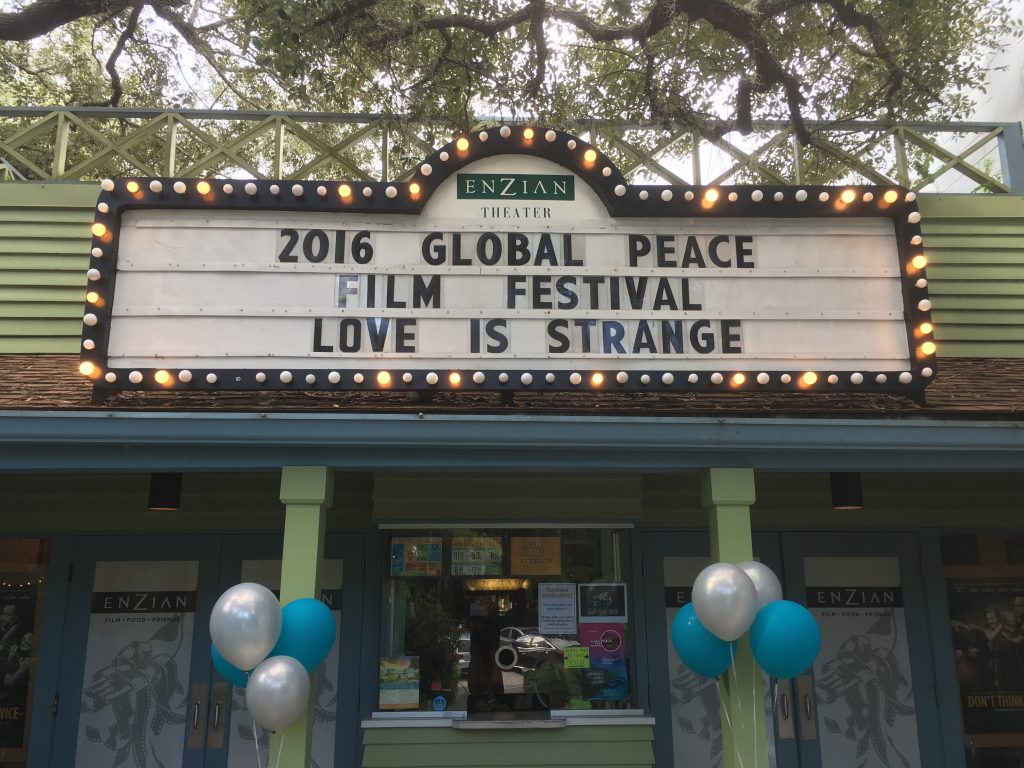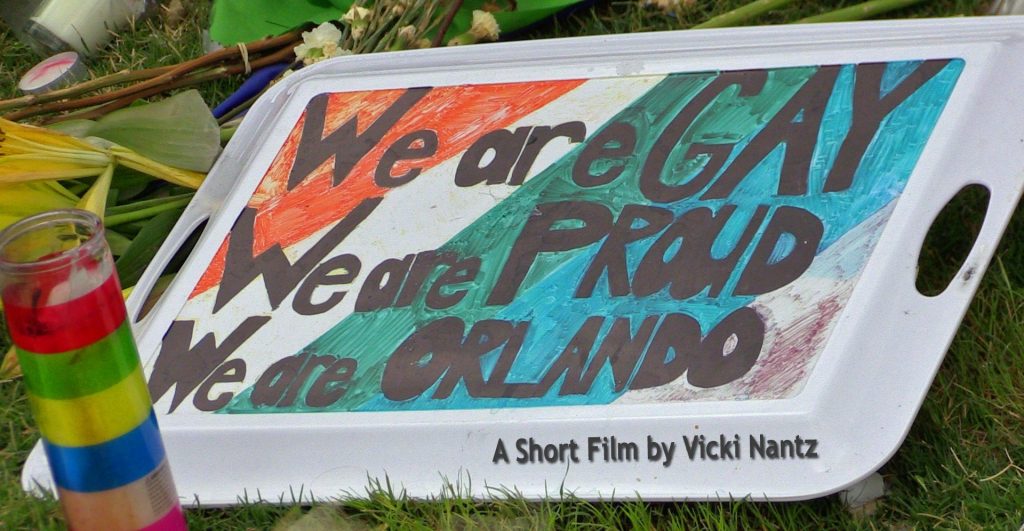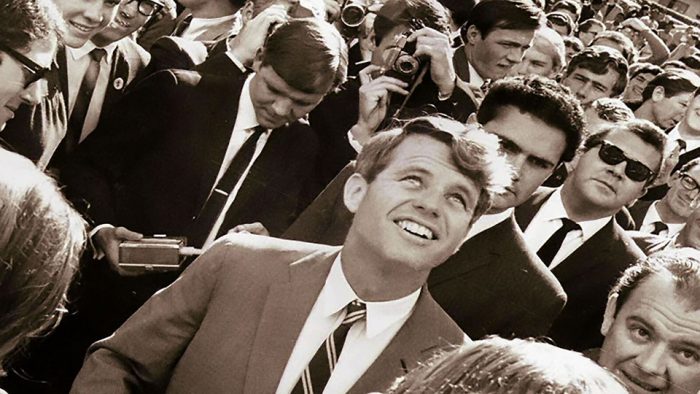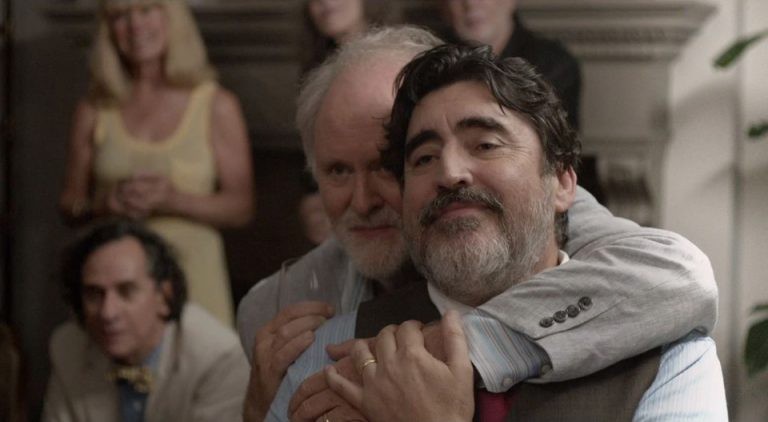Global Peace Film Festival 2016
Taking the Pulse of Orlando
Global Peace FF highlights issues relevant to our city and the world
 From The Orlando Weekly, September 19, 2016
From The Orlando Weekly, September 19, 2016
With the Pulse massacre still fresh in the minds and hearts of Orlando residents, there’s perhaps never been a more relevant time for the Global Peace Film Festival. And this year’s event, which runs September 19-25, will address that tragedy head on, with a screening of Vicki Nantz’s short film, We Are Gay, We Are Proud, We Are Orlando, on Thursday night, followed by a ceremony to honor LGBT activists Billy Manes and City Commissioner Patty Sheehan.
“The Pulse massacre affected me on a deeply personal level, although I didn’t know the victims and I wasn’t there,” says Nantz. “A couple of days after Pulse, I took my camera downtown just to document things, not even thinking about an actual project when I set out. I just knew that this horrific event should never be forgotten or minimized. … The short is my personal reflection of the awful attack in my own words. It follows the initial shock and grief that we all felt, but I also express my anger about our culture that still demonizes gay and transgender people, and now makes assault weapons available for the mass murder of gay and transgender people.”
“A lot of [the festival] aligns with healing after Pulse,” says Executive Director Nina Streich. “That’s why [we chose] Love Is Strange as the opening-night film. And we have several films in the festival, including Vicki Nantz’s film, [that address Pulse-related issues]. We’re showing it with Puzzles: When Hate Came to Town, which is about an attack in New Bedford, Mass., … at a gay bar. The film is about all the different factors that went into that and the community coming together.”
But with a total of 29 films (25 documentary features, two narrative-fiction features and two shorts), the 14th annual event has much more to offer at its eight venues scattered throughout Orlando, Winter Park and Maitland. It’s even offering an art exhibition (the K-12 Peace Art Exhibit at City Hall) and, for the first time, a live, one-man play (Tom Bird’s Bearing Witness on Wednesday at Mad Cow Theatre).
“Though the title is Global Peace Film Festival, I see it as much broader than that,” Streich says, adding that she’s overjoyed to be able to present Bearing Witness, which tackles war and the Holocaust. “This is a unique opportunity.”
Surprisingly, the movie total is significantly lower than that of last year’s event, which screened 57 films. However, Streich doesn’t see that as a problem.
 “We aim to show everything twice,” Streich says. “This year we’ve cut down drastically. … We couldn’t devote enough attention to each film individually [last year]. We felt we had too much, [so] we felt that it would be better for both filmmakers and audiences to cut down.”
“We aim to show everything twice,” Streich says. “This year we’ve cut down drastically. … We couldn’t devote enough attention to each film individually [last year]. We felt we had too much, [so] we felt that it would be better for both filmmakers and audiences to cut down.”
The total may seem small when compared to other festivals because the GPFF includes almost no shorts, mostly because of the difficulty of sensitively pairing a short with a feature when both films tackle difficult topics in their own right, says Streich. But when comparing the number of features between GPFF and the Florida Film Festival, which is twice as long, GPFF isn’t vastly smaller.
The five main film venues are the Bush and SunTrust auditoriums at Rollins College, the Gallery at Avalon Island, the Cobb Plaza Cinema Café and Winter Park Public Library. In addition, Valencia College West Campus, Valencia College Winter Park Campus and the Enzian Theater will each be holding one screening, with the latter hosting the opening-night film and party on Tuesday. (The only Monday event is the aforementioned art exhibit, making Tuesday the film kick-off day.)
Highlights of the film lineup include Memories of a Penitent Heart (directed by University of Central Florida graduate Cecilia Aldarondo, who will be in attendance) and Newtown, which address issues similar to We Are Gay, We Are Proud, We Are Orlando. Also notable are CARE (about elder care and featuring a panel discussion after the Saturday showing), The If Project Documentary (about recidivism in women’s prisons), Letter to a Terrorist (one of the two shorts), Why Can’t I Be a Sushi (about Sunni and Shiite friendship), Speed Sisters (about the first all-female racecar-driving team in the Middle East), Sustainable (about the food industry) and RFK in the Land of Apartheid: A Ripple of Hope.
With annual paid admissions of about 2,000 and attendance at all events around 6,000, according to Streich, the GPFF is arguably the third-highest-attended film festival in Orlando, behind the Florida and Orlando film festivals.
A Gold Pass, which offers priority access to everything, sells for $199. A Silver Pass, which is the same as the Gold, just without priority access, goes for $99. The festival also offers a Weekend Pass for $50 and a Weekday Pass for $25. Individual films cost $8. For more information, visit www.peacefilmfest.org.
Opening-night blog
The 14th annual Global Peace Film Festival opened Tuesday night at the Enzian Theater in Maitland with a screening of Love Is Strange, starring John Lithgow, Alfred Molina and Marisa Tomei.
About 150 patrons attended the film and Eden Bar after-party. Though none of the film’s stars attended in person, Lithgow addressed the audience via a brief filmed introduction.
The festival, which runs through Sunday at several venues in Orlando and Winter Park, officially opened on Monday with an art exhibit at City Hall, but Tuesday night marked the launch of this year’s film lineup, which includes many movies with LGBT themes. Though Love Is Strange is just as much about family and loss as LGBT issues, it poignantly tackles the topic of gay marriage, especially as it relates to job discrimination.
In addition to the films, the festival is noteworthy for discussion panels and directors who will be attending screenings of their films, including Vicki Nantz for We Are Gay, We Are Proud, We Are Orlando, Tami Gold and David Pavlosky for Puzzles: When Hate Came to Town, Kathlyn Horan for The If Project, Mitra Sen for Under the Same Sun, Francisco Alarcon for The Deportation of Innocence, Cecilia Aldarondo for Memories of a Penitent Heart, Robert Frye for The Nuclear Requiem, Kim Snyder for Newtown and Full Sail graduate Famor Botero for ProjectMAD.
Friday-night festival foibles
 The Global Peace Film Festival continued on Friday night with 10 films at six locations in Orlando and Winter Park. I attended what was supposed to be the 5:30 p.m. screening of RFK in the Land of Apartheid: A Ripple of Hope at the Cobb Plaza Cinema Café, but, regrettably, things didn’t go quite as planned.
The Global Peace Film Festival continued on Friday night with 10 films at six locations in Orlando and Winter Park. I attended what was supposed to be the 5:30 p.m. screening of RFK in the Land of Apartheid: A Ripple of Hope at the Cobb Plaza Cinema Café, but, regrettably, things didn’t go quite as planned.
When I arrived, the one representative from the festival didn’t know which theater the film would be in. (I eventually tracked down the cinema manager, who seemed to be the only informed staff member.) After finding my seat among the roughly 10 people in attendance – which included the filmmakers – the movie began. But it was the wrong one. Instead of seeing the documentary about Robert Kennedy’s historic trip to South Africa in 1966, we watched Underfire: The Untold Story of Pfc. Tony Vaccaro. That was the one silver lining of the evening, as the documentary by Max Lewkowicz (3 ¼ stars) is well worth a watch when it gets its regularly scheduled festival premiere on Saturday at 12:30 p.m., at the Winter Park Public Library. (It’s also playing on Sunday at 3:30 p.m. at the Gallery at Avalon Island.)
But that wasn’t exactly a silver lining for RFK directors Tami Gold and Larry Shore, who had to wait almost an hour and a half for their film thanks to an apparent Blu-ray mishap. And when it finally did begin, it was projected in the wrong aspect ratio, 1.85:1 instead of the boxier 1.37:1 in which it was shot. (Underfire didn’t look great, either, as it was projected on Blu-ray, but at least the aspect ratio was correct.) This necessitated another delay while festival staff tried to fix the problem. They couldn’t. So Gold rightfully walked out in frustration, as did I.
Festival Artistic Director Kelly DeVine, with whom I spoke, was extremely gracious and apologetic to the filmmakers and the audience. And, admittedly, no festival is without glitches. But, nevertheless, the event should be held accountable and should find a way to make it up to Gold, Shore and its patrons. I’d suggest another showing of RFK in the correct aspect ratio.
Executive Director Nina Streich reached out to me for comment. “Apologies for the terrible problem with the RFK screening,” she said. “You are right that the festival should be held accountable. You are also right that slip-ups occur. Last night’s was the worst slip-up we’ve had, and we will be paying attention to how that won’t happen again as we do our production post-mortem.”
© Orlando Weekly / MeierMovies, LLC
